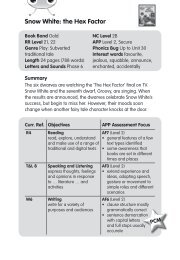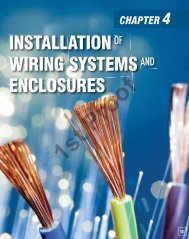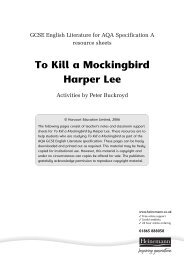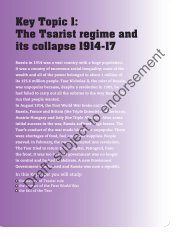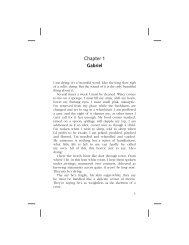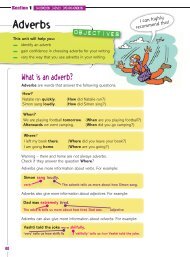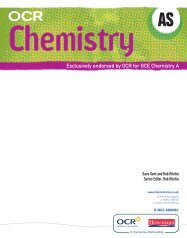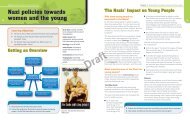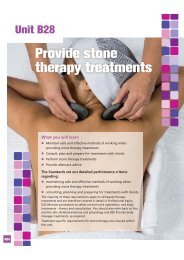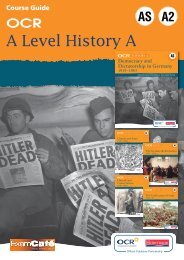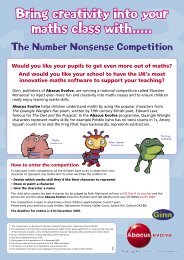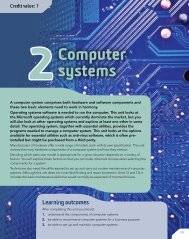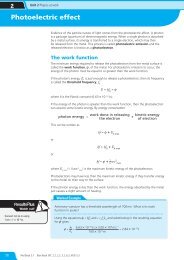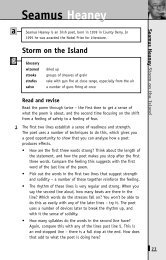Freak the Mighty - Pearson Schools
Freak the Mighty - Pearson Schools
Freak the Mighty - Pearson Schools
Create successful ePaper yourself
Turn your PDF publications into a flip-book with our unique Google optimized e-Paper software.
Assessment Task 2<br />
To be carried out after reading Chapter 25 and <strong>the</strong> dictionary. The purpose of this task is to analyse <strong>the</strong> ways that <strong>the</strong> language and<br />
ideas of Chapter 25 help to show that Max has developed as a character over <strong>the</strong> course of <strong>the</strong> novel. The investigation should be<br />
completed in pairs, using Resource Sheet 20. A fur<strong>the</strong>r shaping of ideas, using Resource Sheet 21, will lead to a Speaking and<br />
Listening assessment of En2 as pupil pairs explain <strong>the</strong>ir ideas and findings to ano<strong>the</strong>r pair.<br />
Assessment focus 3<br />
Level 3 Level 4 Level 5 Level 6 Level 7<br />
I can understand <strong>the</strong> literal<br />
meaning but find it difficult<br />
to read between <strong>the</strong> lines to<br />
find deeper meanings. I can<br />
make straightforward<br />
comments when talking<br />
about a text but sometimes I<br />
give a personal view ra<strong>the</strong>r<br />
than referring to <strong>the</strong><br />
information within <strong>the</strong> text.<br />
I try to use evidence from<br />
different points in <strong>the</strong> text to<br />
read between <strong>the</strong> lines and<br />
understand what <strong>the</strong> writer<br />
means.<br />
My comments about <strong>the</strong><br />
meaning of a text are often<br />
correct but I sometimes fall<br />
back on telling <strong>the</strong> story.<br />
I can draw on evidence to<br />
develop an explanation of <strong>the</strong><br />
writer’s meanings.<br />
In my comments I can make<br />
inferences and deductions<br />
based on evidence in <strong>the</strong> text.<br />
I attempt to explore in detail<br />
different layers of meaning, using<br />
evidence in <strong>the</strong> text. I can explain<br />
<strong>the</strong> significance of what I have<br />
discovered in <strong>the</strong> text.<br />
I can explore and analyse<br />
different layers of<br />
meaning, supporting my<br />
deductions with detailed<br />
and carefully selected<br />
evidence from <strong>the</strong> text.<br />
Assessment focus 5<br />
Level 3 Level 4 Level 5 Level 6 Level 7<br />
I can identify a few<br />
straightforward features of<br />
<strong>the</strong> writer’s use of<br />
language, although I might<br />
not add a comment about<br />
<strong>the</strong>m, e.g. ‘Max has<br />
become more confident by<br />
<strong>the</strong> end of <strong>the</strong> novel.’<br />
I can identify some<br />
straightforward features of<br />
writers’ use of language and<br />
make some simple comments<br />
about <strong>the</strong> writer’s choices,<br />
e.g. “Max has moved from<br />
being unable to read and think<br />
to be able to write his own<br />
novel.”<br />
I can identify a number of<br />
different features of writers’<br />
use of language and add some<br />
explanation of <strong>the</strong> effect of<br />
choices, e.g. ‘At <strong>the</strong> end of <strong>the</strong><br />
novel, Max uses <strong>the</strong> phrase<br />
“unvanquished truth”. He could<br />
not have done this at <strong>the</strong> start<br />
of <strong>the</strong> novel.’<br />
I can explain in detail, using<br />
appropriate technical terms, how<br />
<strong>the</strong> writer uses language effectively<br />
at different points in <strong>the</strong> text. I can<br />
comment on how <strong>the</strong> writer’s<br />
language choices have an effect on<br />
<strong>the</strong> reader, although <strong>the</strong>se<br />
comments might be quite general<br />
ones, e.g. ‘Max is able to<br />
understand <strong>the</strong> power of<br />
knowledge. He says that now he<br />
has written a book, he “might even<br />
read a few.” This makes <strong>the</strong> reader<br />
smile and we realise that he now<br />
sees himself as being quite clever.’<br />
I can identify and explain<br />
in detail a range of<br />
features of language use<br />
and look for patterns in<br />
how <strong>the</strong>y are used. I can<br />
explain and analyse <strong>the</strong><br />
effect on <strong>the</strong> reader of <strong>the</strong><br />
writer’s choice of specific<br />
words, phrases and<br />
techniques.<br />
<strong>Freak</strong> <strong>the</strong> <strong>Mighty</strong> Assessment Grid<br />
©<strong>Pearson</strong> Education 2006



